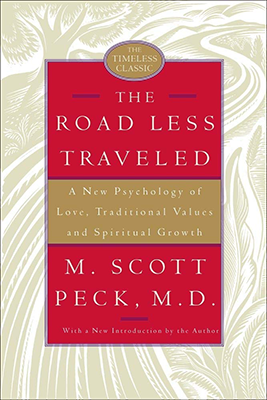The Road Less Traveled
“The Road Less Traveled” is a self-help book written by psychiatrist and author M. Scott Peck, published in 1978. It explores various aspects of personal growth, psychological and spiritual development, and the journey towards self-actualization. Here’s a summary:
- Discipline: Peck begins by emphasizing the importance of discipline in life. He defines discipline as the ability to delay gratification, take responsibility for one’s actions, and accept the challenges and difficulties of life. Discipline is essential for personal growth and maturity.
- Love: Peck discusses the nature of love and its role in human relationships. He distinguishes between genuine love, which requires effort, commitment, and sacrifice, and “falling in love,” which is often based on infatuation and fantasy. True love involves caring for others, nurturing their growth, and respecting their autonomy.
- Growth and Mental Health: Peck explores the connection between personal growth and mental health. He argues that mental health is not just the absence of illness but the presence of a positive state of well-being and self-awareness. Personal growth requires facing and overcoming emotional and psychological challenges, such as unresolved trauma or childhood wounds.
- Spiritual Growth: Peck discusses the importance of spiritual growth and the quest for meaning and purpose in life. He suggests that spirituality involves connecting with something greater than oneself, whether it be a higher power, nature, or a sense of universal truth. Spiritual growth often involves grappling with existential questions and seeking deeper understanding and enlightenment.
- The Four Stages of Spiritual Development: Peck outlines four stages of spiritual development:
-Chaotic/Antisocial Stage: Characterized by impulsivity, selfishness, and a lack of empathy.
– Formal/Institutional Stage: Marked by conformity to external rules and beliefs, often without genuine understanding or commitment.
– Skeptic/Individual Stage: Involves questioning and critical thinking, as well as a willingness to explore alternative beliefs and ideas.
– Mystical/Communal Stage: Characterized by a sense of connection with others and with something greater than oneself, as well as a commitment to service and social justice.
- The Importance of Community: Peck emphasizes the importance of community and relationships in personal growth and spiritual development. Supportive relationships provide encouragement, accountability, and a sense of belonging, facilitating growth and healing.
- Conclusion: “The Road Less Traveled” concludes with a call to embrace discipline, love, and spirituality as essential components of a fulfilling and meaningful life. Peck encourages readers to embark on the journey of self-discovery and personal growth, recognizing that it may be challenging but ultimately rewarding.
Overall, “The Road Less Traveled” offers valuable insights and practical guidance for individuals seeking to cultivate self-awareness, personal growth, and spiritual fulfillment. It encourages readers to embrace life’s challenges and uncertainties as opportunities for growth and transformation.

